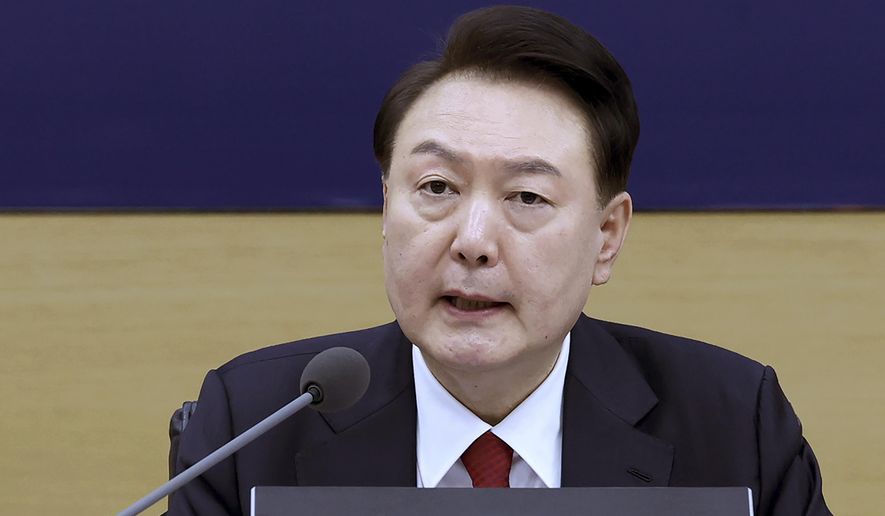SEOUL, South Korea (AP) — South Korea’s president met the leader of thousands of striking junior doctors on Thursday and promised to respect their position during future talks over the government’s contentious push to sharply increase medical school admissions.
The meeting between President Yoon Suk Yeol and Park Dan, head of an emergency committee for the Korea Intern Resident Association, was the first of its kind since more than 90% of the country’s 13,000 trainee doctors walked off the job in February, disrupting hospital operations.
During a lengthy televised public address Monday, Yoon defended his plan to recruit 2,000 more medical students each year, from the current cap of 3,058. But he said his government remains open to talks if doctors come up with a unified proposal that logically explains their calls for a much smaller hike of the enrollment quota.
On Thursday, Yoon and Park met for more than two hours, during which “the president said he would respect the position of trainee doctors in the event of talks with the medical circle on medical reform issues including an increase of doctors,” according to Yoon’s office.
It didn’t say whether the government plans any immediate talks with the doctors and whether Yoon’s comments would mean he’s willing to lower the size of his proposed medical school admission increase. But Yoon has faced calls from many, including some in his own conservative ruling party, to make concessions as the party’s candidates face an uphill battle against their liberal rivals ahead of next week’s crucial parliamentary elections.
During the meeting, Yoon also listened to Park’s views on problems facing South Korea’s medical system, and the two exchanged opinions on how to improve working conditions for interns and medical residents, Yoon’s office said in a statement.
Yoon has said the 2,000-student enrollment increase is the minimum necessary, given that South Korea has one of the world’s most rapidly aging populations and its doctor-to-patient ratio is the lowest among advanced economies.
But many doctors have argued that universities can’t deal with such an abrupt increase in the number of students, and that it would ultimately undermine the quality of the country’s medical services. But critics say doctors, one of the best-paid professions in South Korea, simply worry that the supply of more doctors would result in lower future incomes.
Public surveys show that a majority of ordinary South Koreans support Yoon’s plan. The doctors’ strikes have triggered hundreds of cancelled surgeries and other medical treatments at hospitals and deepened worries about prolonged medical impasse. Observers say ordinary people are increasingly fed up with the protracted confrontation between the government and doctors and want the strikes to end.




Please read our comment policy before commenting.